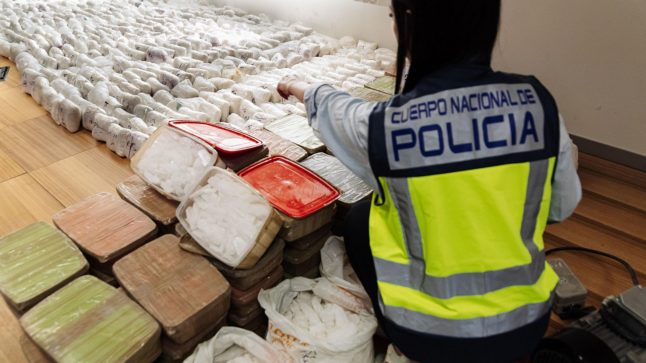In Spain, penalties for drug possession greatly depend on where you have them and if you have the intention to sell them. Generally, the penalties will be less severe, or even non-existent, in the case of certain drugs, if you have them in your own home for example and they’re for your own private use. Possessing drugs for your own use is not considered a crime by the Penal Code in Spain.
Possession and use in public, however, is an altogether different story. Although the mere possession of drugs alone is technically not a criminal offence, so long as they are not intended for illegal trafficking, it is punishable.
READ ALSO: What’s the law on cannabis in Spain?
For minor possession offences, which are treated by Spanish law as ‘administrative infractions’ equivalent to misdemeanors in the US, or a community order in the UK, fines (multas) are issued. For more serious offences with higher quantities, where intent to distribute can be proven, jail time becomes a possibility.
Multas (fines)
The fine system is outlined in Spain’s Organic Law 4/2015 on the Protection of Citizen Security, where a whole range of fines are established from €601 up to €30,000 for the most serious crimes, depending on the type of drug it is, the quantity, and whether it’s your first time being fined for public drug possession (the concept of recidivism in Spanish law, which multiplies the fine).
For first-time offenders caught with a small amount of any illegal drug for personal consumption, it is extremely likely the minimum fine (€601) would be issued, though it can be halved if paid within a certain timeframe of formally receiving the penalty notice. For repeat offenders, the fine is likely to be multiplied.
According to Spain’s National Drug Plan website, fines can be issued for the following:
- The illicit use or possession of toxic drugs, narcotics or psychotropic substances, even if they were not intended for trafficking, in public places, roads, public establishments or public transport, as well as the abandonment of the instruments or other tools used for this purpose in the aforementioned places. When the offenders in matters of consumption or possession are minors, the penalty of a fine may be suspended if they voluntarily agree to treatment or rehabilitation, if necessary, or to re-education activities.
- The transfer of people, in order to facilitate their access to toxic drugs, narcotics or psychotropic substances, provided that it does not constitute a crime.
- The execution of acts of illicit planting and cultivation of toxic drugs, narcotics or psychotropic substances in places visible to the public, when they are not criminal offences.
- Tolerance of illegal consumption or trafficking in toxic drugs, narcotics or psychotropic substances in public premises or establishments or the lack of diligence in order to prevent them by owners, administrators or managers thereof.
What constitutes personal possession?
For people caught in public in possession of drugs, the maximum quantities considered for personal possession according to the Spanish government are as follows:
- 100 grams of cannabis
- 25 grams of hashish
- 7.5 grams of cocaine
- 3 grams of heroin
- 1.2 grams of methadone
- 1440 milligrams of MDM, MDMA, MDEA
- 900 milligrams of amphetamine
- 3 milligrams of LSD
READ ALSO: Pharmacies in Spain will be able to sell medical marijuana by the end of 2022
Drug trafficking
If you’re caught with quantities that exceed these personal amounts, you could be charged with intent to supply or traffic drugs, something that is considered a crime in Spanish law and could warrant prison time.
In terms of supply, Spanish law takes into account the ‘harmfulness of the substance’ and differentiates between drugs considered to cause ‘serious damage’ to individuals and society more broadly, such as heroin and cocaine, and substances that don’t cause ‘serious damage’, such as cannabis and hashish.
Prisons sentences vary depending on a number of different factors, such as general criminal offences with no aggravating factors, which carry a potential sentence of 3-6 years, aggravated cases (very large quantities, selling or supplying adulterated substances, to children, or educational centres, and so on) which can earn you 6-9 years, all the way up to participants in organised crime, who can receive 9-12 years, and the heads of drug trafficking organisations, who would face 10-15 years.



 Please whitelist us to continue reading.
Please whitelist us to continue reading.
Member comments